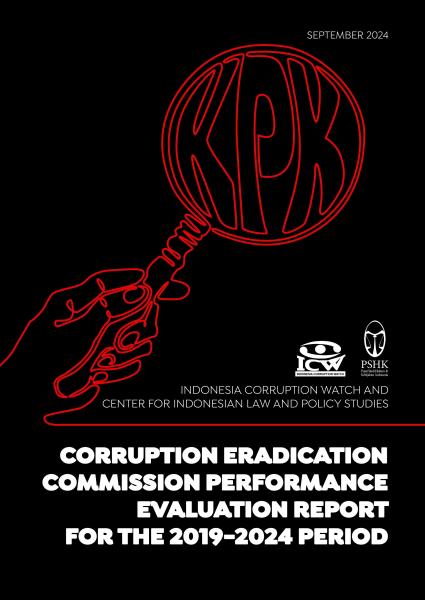Corruption Eradication Commission Performance Evaluation Report for 2019-2024 Period

The state of corruption eradication in Indonesia remains a cause for concern. Transparency International Indonesia’s 2023 Corruption Perception Index (CPI) confirms this, with Indonesia’s score remaining at 34 and its ranking declining from 110 to 115. Compared to the CPI score when President Joko Widodo was first inaugurated nine years ago, Indonesia has made minimal progress. This stagnation indicates a need for a thorough evaluation of anti-corruption policies, particularly those related to law enforcement reform.
Similarly, the Corruption Eradication Commission (KPK) has faced increasing skepticism about its effectiveness. A series of controversies over the past four years, including low-quality and low-quantity enforcement, ethical scandals, and deteriorating institutional governance, have eroded public trust. Consequently, the KPK consistently ranks lowest in public trust surveys among state institutions.
As a product of reform and a beacon of hope for eradicating corruption, the KPK must be restored to its former strength. This requires internal improvements and external support from other state institutions. Moreover, the KPK must demonstrate a willingness to learn, listen, and respond to public feedback. The law, specifically Article 41 of the Corruption Eradication Law, recognizes and guarantees the public’s role and contribution in combating corruption.
In response to the challenges facing the KPK, Indonesia Corruption Watch and the Center for Indonesian Law and Policy Studies (PSHK) have initiated a critical analysis of the agency’s performance over the past five years. This evaluation focuses on the KPK’s institutional governance, enforcement capabilities, prevention efforts, as well as the implications of the revised KPK Law and changes in its institutional status.










